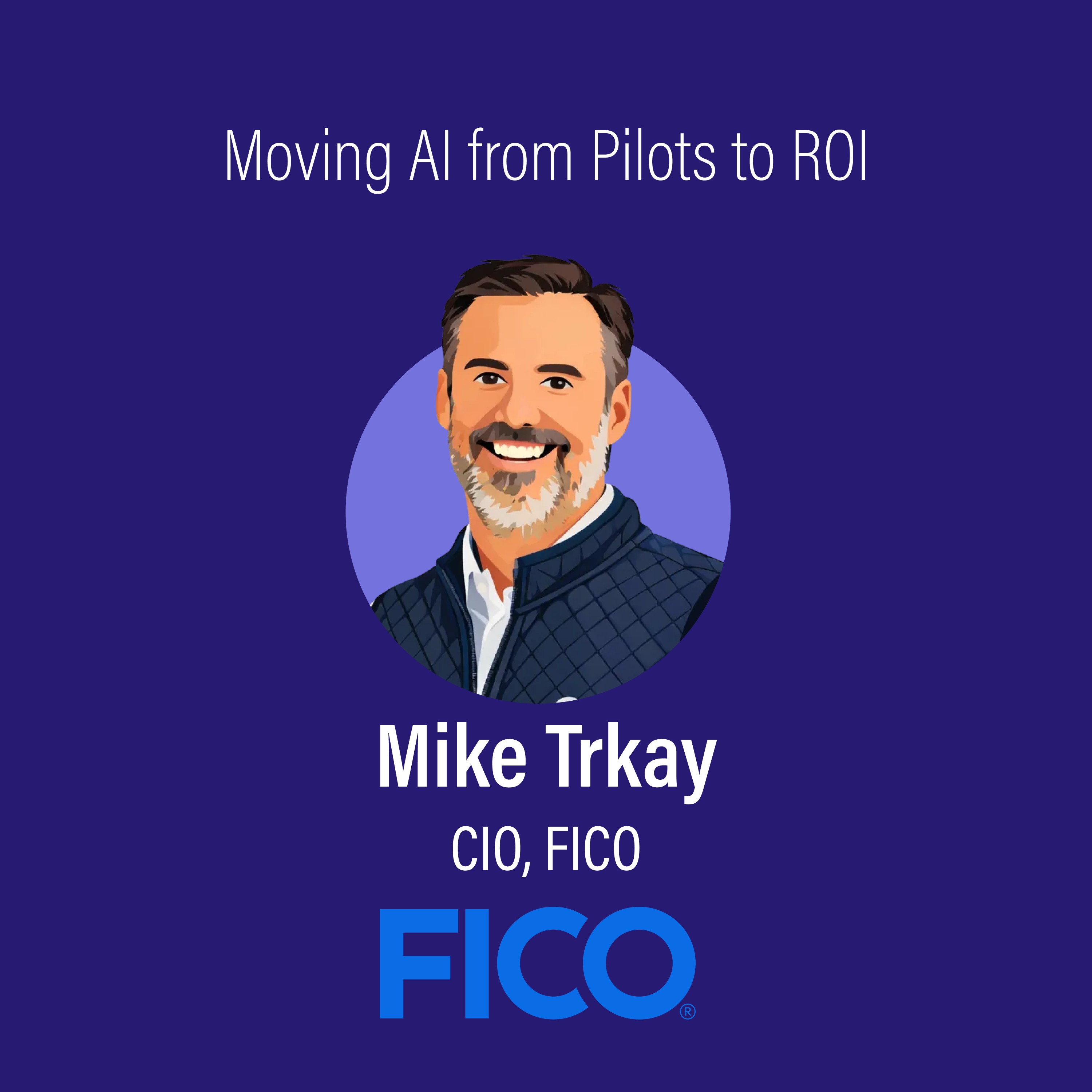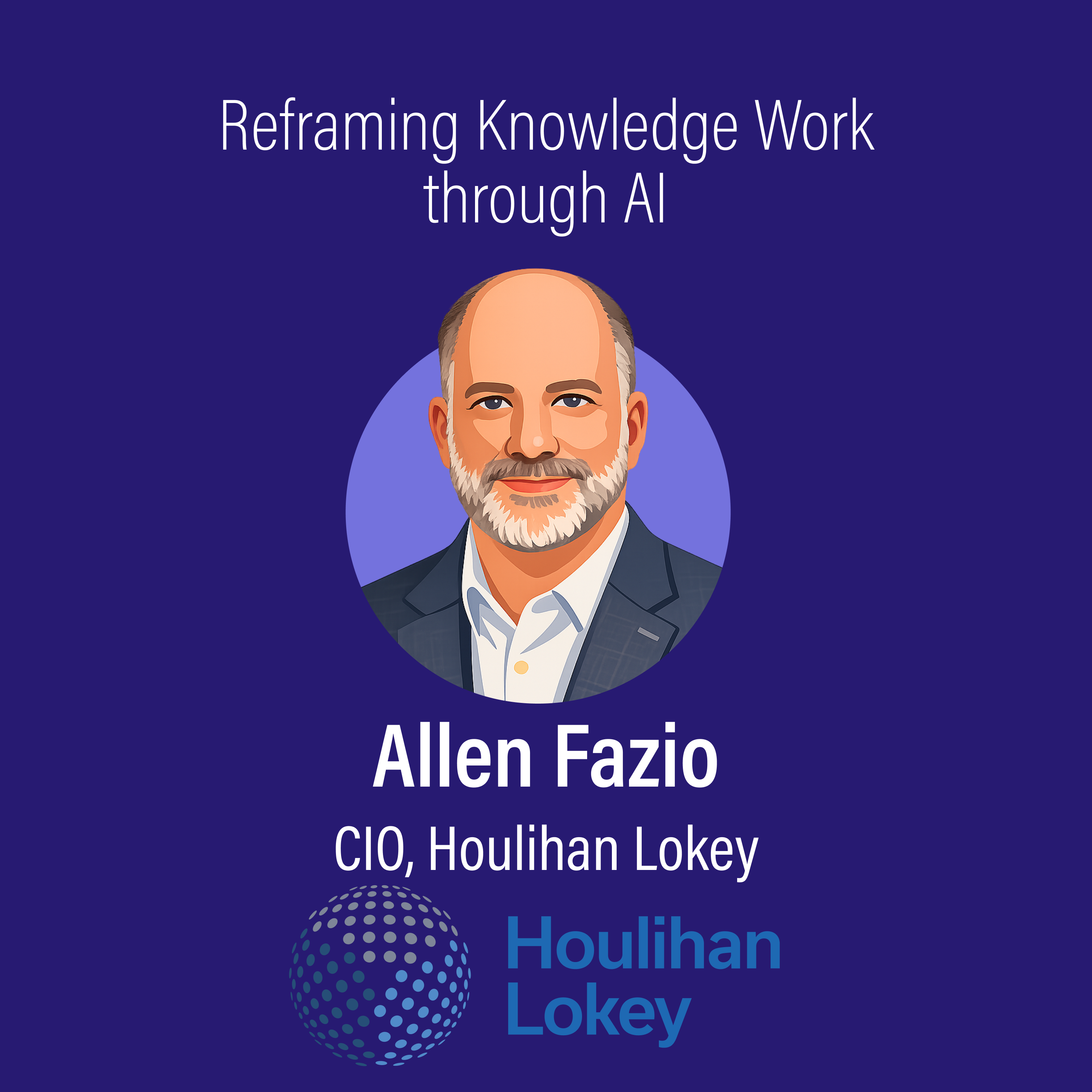From Automation to Agentic AI
On the 51st episode of Enterprise AI Innovators, host Evan Reiser (Abnormal AI) talks with Shyam Bhojwani, Chief Information Officer at Nextdoor. With millions of users across the U.S., the U.K., and Canada, Nextdoor is one of the largest neighborhood-based platforms in the world, connecting communities with real-time information, local recommendations, and public safety alerts. In this conversation, Shyam shares his perspective on how AI is shifting automation from static workflows to dynamic, context-aware agents, why IT and cybersecurity are prime candidates for fast AI wins, and how culture, architecture, and data readiness all shape the long-term success of enterprise transformation.
One of the biggest mindset shifts Shyam highlights in today’s technology landscape is the move from improving existing workflows to reinventing them altogether. For years, automation has been about taking manual, repetitive tasks and making them faster or more efficient. But with AI, we're entering a new phase where systems don't just follow rules, but understand the bigger picture and make decisions based on context. Shyam describes this as a shift from traditional workflows to agentic orchestration—a model where AI agents behave more like autonomous team members than rule-based scripts. These agents understand the business context, infer intent, and make decisions dynamically. "Earlier, you would sort of create static processes, step A, step B, step C. Now, with AI, it can go from step A to step C based on context," he explains. These agents can recognize patterns and skip unnecessary steps, transforming the speed of work and how work actually gets done. "Whether it's your front desk agent, IT agent, or procurement agent," Shyam says, "they're all able to talk to each other with the right context." In this vision, AI evolves beyond automation of tasks—it orchestrates outcomes.
When asked where companies should begin, Shyam doesn't hesitate: "IT is a low-hanging fruit." He points to helpdesk processes, access provisioning, and security alert triage as prime use cases where AI can deliver fast, measurable value with minimal disruption. "Everything should be real-time—right access, right approval, right context," he says. In cybersecurity, the opportunity is just as clear. AI can support investigation, triage, and even early remediation, saving time and surfacing the highest-priority threats. Another favorite example? Real-time meeting insights. An AI agent should instantly surface the right battle card if a competitor is mentioned in a customer call. “That's such an easy win," he notes. "It helps revenue and productivity and doesn't require reinventing your workflows." These examples show that transformation doesn't mean overhauling everything; it can start with targeted, high-impact improvements.
For Shyam, the most significant long-term opportunities aren't technical; they're organizational. "Everyone says they're a tech-forward company. But now you need to be an AI-forward company, too." That starts with cultural change: hosting office hours, sending internal newsletters, and showing employees what's possible. But it also requires architectural clarity. "You used to have people, process, tech. Now it's people, process, tech, and data," he says. Shyam emphasizes data hygiene, lineage, and governance as essential for trustworthy AI systems. He advocates for a centralized AI Ops team to avoid tool sprawl, ensure department interoperability, and guide the organization through the rapidly changing AI landscape. In his words: "AI is powerful—but checks and balances are still needed."
Shyam's vision for enterprise AI isn't one about hype but readiness. He sees a world where AI doesn't just automate tasks but also understands business context, drives meaningful outcomes, and enhances human decision-making. That starts with IT and security, but scales across every function, from sales to finance to customer success. The future he describes is bold: one where CIOs renew AI agents instead of SaaS licenses, and where orchestration replaces step-by-step automation. But it's also grounded in experience. "You have to unlearn to learn new things," he says. In Shyam's view, the thriving companies won't just adopt AI; they'll align their people, processes, and data around it, with a clear-eyed view of both the risks and the rewards.
Listen to Shyam's episode here and read the transcript here.





